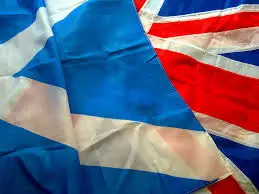Referendums seem to be particularly in vogue at the moment, with the vote on the UK’s membership of the EU just a couple of months away, news that New Zealand has voted to keep its national flag in a country-wide referendum, and the shadow of a potential second referendum on Scottish independence looming over May’s elections.
However, with everything else that’s going on in the world it would be easy to forget that, had Scotland voted ‘Yes’ in 2014’s referendum, today would have been Scottish ‘Independence Day’.
The Scottish Government’s White Paper, ‘Scotland’s Future: your guide to an independent Scotland’, published in advance of the referendum, stated that:
If Scotland votes Yes in the referendum the Scottish Government will negotiate so that Scotland becomes independent on 24 March 2016.
So if 192,000 Scots had been persuaded to vote Yes instead of No, and Scotland had decided to leave the UK and instigate the breakup of one the oldest political unions in the world, what would day one hold for an independent Scotland?
It’s fair to say that the Scottish economy is not where Yes campaigners – or indeed No campaigners – thought and hoped it would be 18 months ago.
The price of oil has fallen from around $100 a barrel at the time of the referendum to record lows of less than $30 a barrel earlier this year, although at the time of writing prices have now stabilised slightly to around $40 a barrel.
Independence supporters argue that the Scottish economy is not solely reliant on oil, and that it is far too diverse and resilient to be crippled by the recent slump in prices, but the Scottish Government’s predictions on oil and gas revenue in an independent Scotland cannot be ignored.
The Government’s own Oil and Gas Bulletin, published in May 2014, forecast that Scottish North Sea tax receipts would likely be around £34 billionbetween 2014 and 2019. That projection plummeted to around £3.4 billion in June 2015, and is likely to be further revised down this year. Indeed, theOffice of Budget Responsibility (OBR) forecast a 94% reduction in North Sea oil and gas revenues back in November.
While it is true that the Scottish economy is based on more than just fossil fuels, they do make a significant contribute to its prosperity, and any nation would struggle with such a price drop on one of its major resources.
The Institute of Fiscal Studies (IFS) has therefore published figures stating that if Scotland was to become independent today then it would be facing an overall debt per capita of £2,850 in 2016/17, compared with £850 across the UK as a whole. The IFS largely attributes this disparity to the significant fluctuation in the oil and gas market.
The IFS also predicted that Scotland’s annual deficit could reach 6% by 2021, while the OBR has projected a potential 0.5% surplus across the UK.
All this paints a pretty bleak hypothetical picture for the world’s newest country.
From an outsider’s point of view, it would be a fair assumption that the Scottish electorate, having had their clear rejection of independenceapparently vindicated by the forecasts and projections for Scotland’s economy published over the last 18 months, would subsequently wholeheartedly dismiss the political party who advocated independence.
But this could not be further from the truth.
Less than seven months after supposedly losing the referendum, the Scottish National Party virtually swept the board in the UK election, winning 56 out of a possible 59 seats in Scotland.
Despite the raft of damaging facts and figures released over the past few weeks detailing the challenges facing Scotland’s economy and the difficulties it would face as an independent state, Nicola Sturgeon and her SNP colleagues are still riding high in the polls and are on course for an historic increased majority in Holyrood.
Unionist politicians are baffled by the electorate’s apparent disconnect between the SNP’s continued pursuit of independence and the projected economic woe it would create.
The SNP argue that with complete control over Scotland’s taxes and policies it would be able to stimulate growth in a way in which the UK as a whole can’t, thus creating a more prosperous nation. The IFS acknowledged that an independent Scotland could improve its finances by negotiating a favourable deal with the UK and pursuing policies which foster growth, but based on its current deficit and finances there would inevitably be much deeper cuts or tax increases than either the UK or Scottish Governments were planning.
Whichever side of the independence debate you’re on, the SNP’s seemingly inexorable rise in the face of ever-mounting economic arguments against their raison d’être is simply remarkable.
The question now is whether Nicola Sturgeon and her party feel confident that they can hold a second referendum on independence and win. Whether they can translate their electoral success into victory in the vote that really matters to them remains to be seen.




